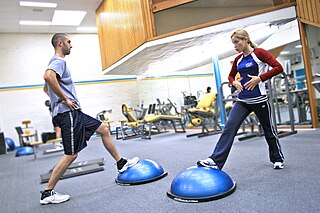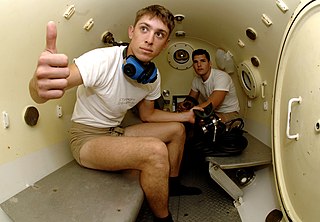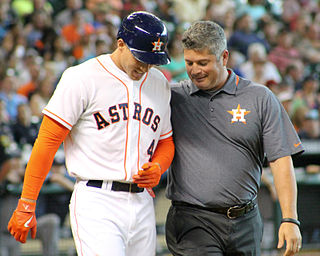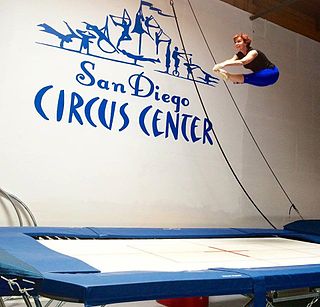Professional certification, trade certification, or professional designation, often called simply certification or qualification, is a designation earned by a person to assure qualification to perform a job or task. Not all certifications that use post-nominal letters are an acknowledgement of educational achievement, or an agency appointed to safeguard the public interest.

An accountant is a practitioner of accounting or accountancy. Accountants who have demonstrated competency through their professional associations' certification exams are certified to use titles such as Chartered Accountant, Chartered Certified Accountant or Certified Public Accountant, or Registered Public Accountant. Such professionals are granted certain responsibilities by statute, such as the ability to certify an organization's financial statements, and may be held liable for professional misconduct. Non-qualified accountants may be employed by a qualified accountant, or may work independently without statutory privileges and obligations.

A personal trainer is an individual who creates and delivers safe and effective exercise programs for healthy individuals and groups, or those with medical clearance to exercise. They motivate clients by collaborating to set goals, providing meaningful feedback, and by being a reliable source for accountability. Trainers also conduct a variety of assessments beginning with a preparticipation health-screening and may also include assessments of posture and movement, flexibility, balance, core function, cardio-respiratory fitness, muscular fitness, body composition, and skill-related parameters to observe and gather relevant information needed to develop an effective exercise program and support client goal attainment.

Certified Public Accountant (CPA) is the title of qualified accountants in numerous countries in the English-speaking world. It is generally equivalent to the title of chartered accountant in other English-speaking countries. In the United States, the CPA is a license to provide accounting services to the public. It is awarded by each of the 50 states for practice in that state. Additionally, all states except Hawaii have passed mobility laws to allow CPAs from other states to practice in their state. State licensing requirements vary, but the minimum standard requirements include passing the Uniform Certified Public Accountant Examination, 150 semester units of college education, and one year of accounting-related experience.
A nutritionist is a person who advises others on matters of food and nutrition and their impacts on health. Some people specialize in particular areas, such as sports nutrition, public health, or animal nutrition, among other disciplines. In many countries, a person can claim to be a nutritionist even without any training, education, or professional license, in contrast to a dietitian, who has a university degree, professional license, and certification for professional practice.

Diving medicine, also called undersea and hyperbaric medicine (UHB), is the diagnosis, treatment and prevention of conditions caused by humans entering the undersea environment. It includes the effects on the body of pressure on gases, the diagnosis and treatment of conditions caused by marine hazards and how relationships of a diver's fitness to dive affect a diver's safety. Diving medical practitioners are also expected to be competent in the examination of divers and potential divers to determine fitness to dive.

An athletic trainer is a certified and licensed health care provider who practices in the field of sports medicine. Athletic training has been recognized by the American Medical Association (AMA) as an allied health care profession since 1990.

Certification is part of testing, inspection and certification and the provision by an independent body of written assurance that the product, service or system in question meets specific requirements. It is the formal attestation or confirmation of certain characteristics of an object, person, or organization. This confirmation is often, but not always, provided by some form of external review, education, assessment, or audit. Accreditation is a specific organization's process of certification. According to the U.S. National Council on Measurement in Education, a certification test is a credentialing test used to determine whether individuals are knowledgeable enough in a given occupational area to be labeled "competent to practice" in that area.
A pedorthist is a professional who has specialized training to modify footwear and employ supportive devices to address conditions which affect the feet and lower limbs. They are trained in the assessment of lower limb anatomy and biomechanics, and the appropriate use of corrective footwear – including shoes, shoe modifications and other pedorthic devices.
The Asian Academy for Sports and Fitness Professionals (AASFP) is a fitness instructors certification body founded in Hong Kong in 1992. The academy provides professional education and training programs in Asia.
The American College of Sports Medicine (ACSM), headquartered in Indianapolis, Indiana, is a sports medicine and exercise science membership organization. Founded in 1954, ACSM holds conferences, publishes books and journals, and offers certification programs for personal trainers and exercise physiologists.
The International Association for Handicapped Divers is a non-profit organization with its headquarters in Middenmeer, the Netherlands. The organization was established in 1993, with the aim to promote, develop and conduct programs for the training in scuba diving of people with a disability. From 1993 to date (2008) IAHD have educated and certified over 5500 divers and dive professionals worldwide. As the IAHD is a non-profit foundation, all the people on the board are volunteers. There are also volunteers in regions around the world.

Nicole Wilkins, is an American professional figure and fitness competitor, fitness model, and fitness trainer. She is a four-time winner of the IFBB Figure Olympia Competition, and a three-time victor of the IFBB Figure International.

A professional fitness coach is a professional in the field of fitness and exercise, most often instruction, including professional sports club's fitness trainers and aerobics and yoga instructors and authors of fitness instruction books or manuals.
The International Sports Sciences Association (ISSA) is an organization that operates as an education and certification company for fitness trainers, personal trainers, strength and conditioning coaches, nutritionists, nutrition coaches, and aerobic instructors.
A strength and conditioning coach is a physical performance professional who uses exercise prescription to improve the performance of competitive athletes or athletic teams. This is achieved through the combination of strength training, aerobic conditioning, and other methods.

Diver training is the set of processes through which a person learns the necessary and desirable skills to safely dive underwater within the scope of the diver training standard relevant to the specific training programme. Most diver training follows procedures and schedules laid down in the associated training standard, in a formal training programme, and includes relevant foundational knowledge of the underlying theory, including some basic physics, physiology and environmental information, practical skills training in the selection and safe use of the associated equipment in the specified underwater environment, and assessment of the required skills and knowledge deemed necessary by the certification agency to allow the newly certified diver to dive within the specified range of conditions at an acceptable level of risk. Recognition of prior learning is allowed in some training standards.

Dian Nissen is a multiple world-title trampoline athlete and competitor, multiple U.S. Women’s Trampoline champion, AAU All-American, health and fitness expert, and entrepreneur. She is the daughter of George Nissen, the inventor of the modern-day trampoline.

The National Council on Strength and Fitness (NCSF) is a member-driven organization of exercise professionals located in Coral Gables, Florida. The NCSF board for certification oversees the National Commission for Certifying Agencies accredited credentialing programs and advocates on behalf of exercise professionals. In 2004, the NCSF organization expanded internationally, offering exercise professional credentialing worldwide. In partnership with Prometric Testing Services the organization provides accredited certification exams in over 10,000 centers within its global network.
A diver training standard is a document issued by a certification, registration regulation or quality assurance agency, that describes the prerequisites for participation, the aim of the training programme, the specific minimum competences that a candidate must display to be assessed as competent, and the minimum required experience that must be recorded before the candidate can be registered or certified at a specific grade by the agency. A standard is a description of the quality required of a product, or a way of doing something that has usually been derived from the experience of experts in a specific field. The purpose is to provide a reliable method for people to share a reasonably consistent expectation regarding the scope and quality of the product or service. Training standards allow objective comparison between the training provided by various agencies and the competence indicated by certification or registration to the specific standard, though in most cases, training and competence may exceed the minimum requirement much of the time, and variation between newly certified divers can be considerable, partly due to differences in the training, and partly due to qualities of the candidate. Training standards may narrowly prescribe the training, or may concentrate on assessment of exit level competence, and allow recognition of prior learning based on various forms of evidence. To be useful, a training standard must be sufficiently specific to allow agreement on the requirements by most readers reasonably competent in the field, including the instructors, assessors, and learners who must use it, the employers of persons trained, the potential customers, and any quality assurance personnel who may need to enforce it. A training standard may be linked to a code of practice referring to how the training should be carried out.









